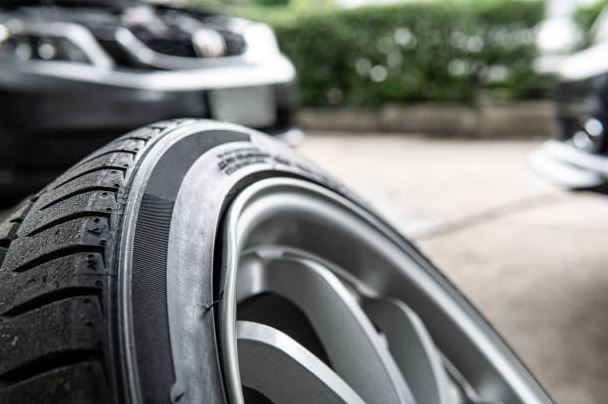If ignored, a small dent on your vehicle rim can pose a danger, from damaged tires to a disrupted driveshaft. In addition, a bent rim will introduce changes in driving patterns and road vibrations. But what are the common culprits behind bent rims?
The general answer is “heavy impact on the wheel.” Whether your rims are made of steel, aluminum alloy, or chrome, they lose durability after absorbing a series of high impacts over time. Now, these high impacts can come in the form of speed bumps, corrosion, and even potholes.
In the rest of this post, you will see in more detail how these factors cause rims to bend, how to avoid them, and the next steps recommended after experiencing a bent rim.
Table of Contents
Common Causes of Bent Rims – Explained
To avoid mechanical problems caused by bent rims, you must first identify the likely causes of such problems. Then, as you learn more about them, you should focus on ways to keep them from happening regularly. Here are the common reasons why drivers have bent rims:
Driving on Incorrect Tire Pressure
Bent rims can occur when you drive on underinflated or low-profile tires. If you have been experiencing this mechanical issue, you need to consider how you inflate your tires.
When you drive on a rough road with incorrectly inflated tires, the rims become more exposed to impacts caused by rocks, nuts, and bumps.
It would help if you started thinking about how underinflated your tires might be.
Corrosion
Corrosion is another common reason why rims bend. Of course, rims made with alloys resist corrosion or rust, but all metals are vulnerable. Once your rim begins to sustain corrosion, it loses strength. By extension, the rim cannot sustain shoulder damage from bad driving impacts.
The effects of corroded rims go beyond cosmetic issues. For example, if your tire deflates oddly repeatedly, it means you have a bad rim that is probably corrupted. Corrosion makes the rim uneven, which weakens the seal of the tire.
Driving Over Concrete Stoppers
Again, any activity that causes a high impact on your rims is bad for them. While self-parking technology has reduced the chances of having warped wheels from driving over curbs, some of these bumps are unavoidable for drivers in a hurry.
Constantly driving over speed bumps and parking blocks causes a high impact on the rims, leading to a dent.
Potholes
Lastly, a perfectly good rim will bend when you drive through enormous potholes. Many car owners with bent wheels will resonate with this during the spring. The danger about potholes is that you don’t know how deep they are until you drive over them and damage is done to your wheel.
Potholes are the chief cause of bent rims. If you live in an area where roads deteriorate and potholes form due to water infiltration and temperature differences, this is most likely the cause of your bent rims.
Unfortunately, you cannot be too careful when avoiding potholes, but there are ways to avoid these causes.
How To Protect New Rims From Bending
You can reduce your chances of having bent rims by avoiding any of the causes listed earlier. However, you can only sometimes be that careful. I’ll recommend you consider using Rimsavers on RimBlades.
Rimsavers are a sacrificial barrier between the wheel rim and the curb that will help protect your wheels from curb rash and cover up existing damage. The tape adheres to the wheel with very high-bond 3M tape and can be easily installed without removing the tires using DIY methods.
They may not prevent severe wheel damage, but investing in these tools will help avoid damage from curb scrapes, potholes, road debris, etc.
Also, when considering the cost of fixing or replacing a bent rim, you’d agree that using RimBlades or RimSavers is worth it. The average cost of a new rim blade is around $80.
What Are The Symptoms Of A Bent Rim?
If your rim is bent, expect to feel a vibration in the steering wheel or seats. Also, you will notice that there is an increased road noise, such as a thumping sound from the cabin of the car (or even a droning sound)
Uneven tire tread wear, poor handling, and significantly reduced fuel efficiency are also symptoms that contribute to an overall poor driving experience.
If you experience these while driving, you need to check your car for a bent rim. If ignored, the life of your lovely tires is on the line.
But Can A Rim Be Fixed If It’s Bent?
Yes, when your rim is bent, you can straighten it using DIY methods such as a hammer and a wood block. However, you need to consider the severity of the damage or dent and the rim type.
If the rim is severely out of shape, you should consider replacing it. Also, a steel rim will have a better chance of looking good after a repair than those made with alloy, which could sustain further damage.
What Problems Can A Bent Rim Cause?
As mentioned earlier, the peril of driving with a bent rim is that it could ultimately lead to a blowout after the tires pinched and popped and the air pressure was reduced.
Other mechanical issues accompanying bent rims revolve around handling, steering problems, and overall driving discomfort.
Bent rims may not make a grating or whirring noise like other car issues, but they cause a strange thumping sound.
Final Thoughts
When you have bent rims, it is important to inspect the causes to prevent future occurrences. While we have gone through the main causes of bent rims, it is important to inspect the severity of the damage before choosing repair over replacement.
Repairing alloy wheels is risky, especially when the damage is severe. Therefore, I recommend you allow an expert to handle the situation rather than attempting a do-it-yourself project.
I hope this helped.

